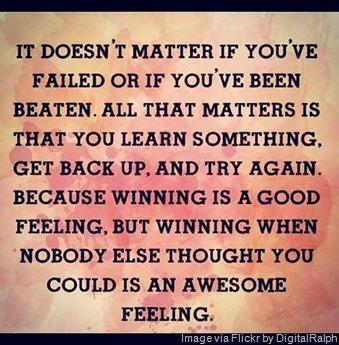 Committees don’t create successful startups. A single visionary entrepreneur almost always is the initial implementer of an innovative new venture, but that lone entrepreneur doesn’t have the bandwidth to grow the business alone. He or she needs the multiplier of growing from the “doer” to a team builder and leader. That’s a big transition, and many entrepreneurs never make it.
Committees don’t create successful startups. A single visionary entrepreneur almost always is the initial implementer of an innovative new venture, but that lone entrepreneur doesn’t have the bandwidth to grow the business alone. He or she needs the multiplier of growing from the “doer” to a team builder and leader. That’s a big transition, and many entrepreneurs never make it.
These entrepreneurs know instinctively what needs to be done, but they may have no idea how to get it done through others. Some will argue that people leadership is a skill you have to be born with, but I’m convinced that it can be learned from experience, mentoring, and failures. The ones who learn quickest are the ones who move from good entrepreneurs to good business leaders.
In my experience working with entrepreneurs and business leaders, I have found no magic formula or recipe to get you there, but there are some key leadership principles that anyone can aspire too and learn from, including the following:
-
Become an ardent student of leadership. Entrepreneurs who become business leaders study the successes of peers, and seek to emulate them. They reach to find mentors who have been there, read books on the subject, and participate in leadership development programs. Leadership requires focus and effort, and doesn’t happen by title.
-
Set personal leadership goals and solicit feedback. Business leadership requires spending more time working on the business, and less time working in the business. You can measure these activities yourself, and get validation from your team. How much of your time is spent on futures, strategizing, and coaching versus fixing daily crises?
-
Tackle new challenges outside your comfort zone. If you never push your limits, and never fail, you never learn new capabilities. As a new entrepreneur, perhaps you have no experience with hiring and delegating, yet these skills are not rocket science. Don’t be afraid to ask for support from more experienced peers and human resources experts.
-
Celebrate small successes and learning from failures. People who demand perfection from themselves are rarely good leaders. Learn to celebrate small steps in the right direction, and failures that are a source of real insight. Be humble and transparent in involving your team and even your customers in your successes and your mistakes.
-
Recognize and reward leadership successes around you. Working to recognize and celebrate leadership in others will supplement and solidify your own capabilities. The more often you walk in the shoes of leaders around you, the easier and more natural it will be for you to define and capitalize on your own leadership elements.
-
Demand strong performance and deal quickly with mediocrity. Recognized business leaders are known for their expectation of excellence from their team, and from themselves. They do not tolerate mediocrity around them, which keeps their teams highly motivated and proud to be associated with the leader as a role model.
-
Work on improving your communication skills. Effective leadership requires effective communication, including verbal, written, and body-language. Your team, customers, and partners need to understand your vision, goals, and what is expected of them, before they decide to follow you. Great leaders also practice active listening and full attention.
-
Go forward with passion and a positive attitude. No one wants to follow a habitually grumpy or negative entrepreneur. Business people are naturally attracted to passionate, motivated, and enthusiastic peers. A side benefit is that you will feel happier and more fulfilled when surrounded by similar positive people. This is a self-fulfilling prophecy.
To grow from being an entrepreneur to a business leader is a personal challenge, and not one that everyone can deal with. The core principles are the same for both – develop and articulate a vision, act decisively, and build personal relationships. The leadership multiplier is required to effectively incent others around you to do the same. How well is that multiplier working for you?

